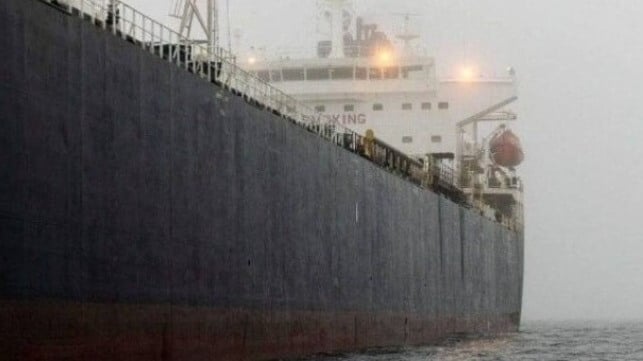EU Plans to Add 73 More Tankers to Shadow Fleet Blacklist

As the Trump administration negotiates with Russian officials over a proposed truce in Ukraine, EU officials have released an initial outline of a 16th package of sanctions on Moscow, including 73 more vessels from Russia's "shadow fleet" of aging tankers.
"The EU is clamping down even harder on circumvention by targeting more vessels in Putin’s shadow fleet and imposing new import and export bans. We are committed to keep up the pressure on the Kremlin," said EU Commission President Ursula von der Leyen in a statement.
For the first time, the EU has placed restrictions on Russian seaports that are used for evading the G7 price cap on Russian oil. Kozmino, the terminal responsible for exporting the ESPO blend to Pacific buyers, has consistently violated the cap since it was imposed; Primorsk, Ust-Luga and Novorossiysk also routinely export Urals grade crude at prices over the limit.
Additional measures include a phased ban on Russian aluminum imports, along with new sanctions on specific Russian officials and banks.
"We keep supporting Ukraine and we keep sanctioning the Russian aggressor, because this is the right thing to do, preserving international rules and order," one EU diplomat told the FT.
Separately, European officials have leaked an early outline of a Franco-British plan to deploy a small peacekeeping force to Ukraine after a possible end of hostilities. The plan would comprise about 30,000 servicemembers, primarily for defending Ukraine's airspace and its sea lines of communication. The scheme would not put Western troops near the front line, where they could come into contact with Russian forces.
The position broadcast by the U.S. government focused on the commercial opportunities of a rapprochement with Moscow. In a statement Wednesday, the U.S. State Department said that it was negotiating with Russia to establish "future co-operation on matters of mutual geopolitical interest and historic economic and investment opportunities," along with a Ukrainian peace deal that Russia and the U.S. will determine.
